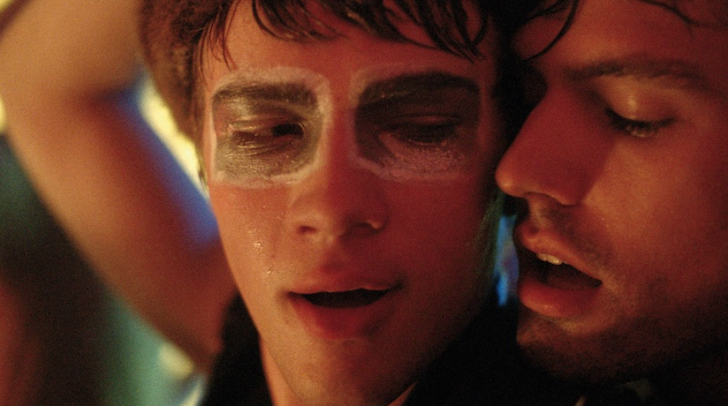Stephen Dunn is a hard man to get a hold of. The Newfoundland native’s first full-length film Closet Monster snagged the best Canadian feature award at 2015’s Toronto International Film Festival.

But his hectic schedule has meant it’s taken nearly a week to track him down. He’s currently developing two other projects (another feature and a series of shorts) as well as planning the screening schedule for Monster, which will take him to London, Rome and South Korea in the next few weeks. We finally caught the 26-year-old wunderkind by phone while he was waiting to catch a flight.
Daily Xtra: When did you find out you’d won the award?
Stephen Dunn: I was actually in bed when I got the call. I was already in Halifax for the Atlantic Film Festival, which was also screening Closet Monster, and Magali (Simard, festival programmer) called to say I had to come back for the awards the next day. So I knew the film had won something, but I had no idea it was best Canadian feature. My distributor called shortly after to say they’d gotten the news that that’s what I’d won and I kept insisting it must be a mistake. I must have said no ten times (laughs). Luckily my mom was in Halifax so she came over and we just cried. Then I got on a plane a few hours later.
Closet Monster tells the coming out story of a Newfoundland teenager, while bringing horror movie elements into the mix. What inspired you to combine those two genres?
It’s not an autobiographical film, but it is extremely personal. I grew up feeling a lot of internalized homophobia. At the time in St John’s there were a lot of very graphic gay hate crimes. The most disturbing one happened in a graveyard behind my school where a young man was sodomized with a branch and later killed himself because he was left paralyzed. It was really intense and disturbing as a child because I didn’t fully understand what it meant. But I grew up feeling like there was a punishment for being who I was. I wanted to make something that would release me from this fear I had, this fear of being myself. When I was thinking about my first feature, there was nothing else I wanted to talk about. The gore element came with the visual of Oscar (the main character) pulling a metal rod out of his stomach. Coming out felt for me like I was excavating something dangerous from myself. I felt like I had to remove the pain in order to use it as a tool of empowerment, so whole concept of the film was built around that one visual.
You’re only 26 and you’ve just had your first feature film premiere at TIFF and win this huge award, before it goes on to screen at all these other festivals. Does this feel natural to you or are you still in shock about your success?
I didn’t expect the kind of reaction the film is getting or that I’d win the same award as C.R.A.Z.Y. and Laurence Anyways. That was a big shock. After the screening, I went on stage and the audience was giving the film a standing ovation and I just broke down in tears. It’s been a really difficult, emotional process making this film. It’s so personal and I couldn’t have made it for anyone else. It was really something I just made for me as a way of getting some closure in certain areas of my life. I’ve never made myself so vulnerable. I took such a big leap and the audience was there to catch me. Being accepted this way can only help me to continue what I’m doing and make more films.


 Why you can trust Xtra
Why you can trust Xtra


